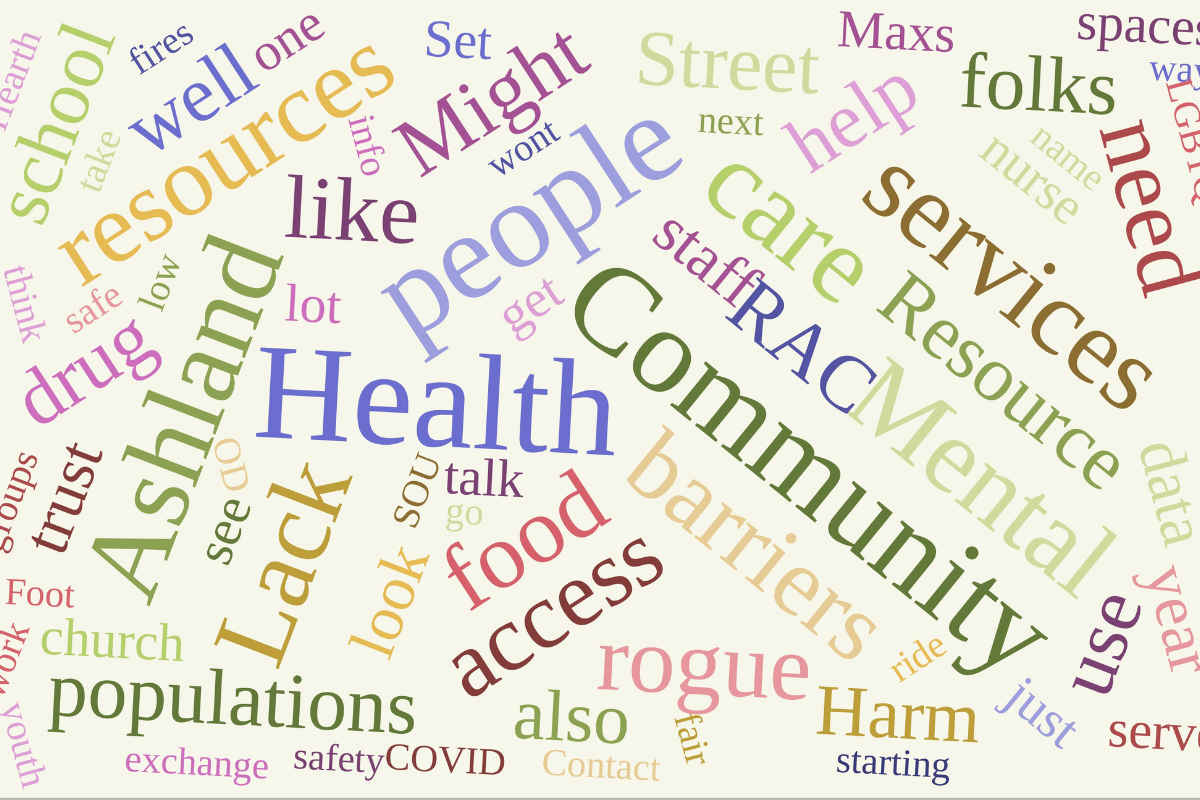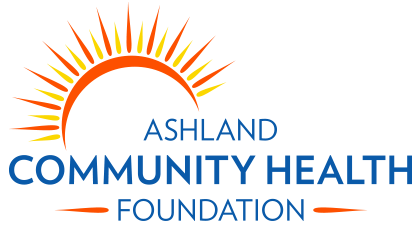
OHSU nursing students collaborate with the ACHF team to understand and learn about the health needs of the community from the community itself.
In the spring, ACHF partnered with Oregon Health & Science University (OHSU) nursing students, Julie Brush and Ashley Chan, and OHSU Associate Professor of Clinical Nursing, Dr. Heather Voss, to learn about barriers to health and wellness for people in Ashland, Talent, and Phoenix.
The 10-week project focused on chronic homelessness, which affects people who have experienced homelessness for at least one year, or repeatedly while struggling with a disabling condition. The population was selected based on a survey conducted by community health leaders who identified this population as experiencing the greatest barriers to accessing health services.
According to their research (Stefanowicz, Feldman, & Robinson, 2021), people experiencing homelessness (PEH) have lifespans almost 30 years shorter than their housed counterparts. They face systemic discrimination, which perpetuates stigma and increases socioeconomic and health inequities. Studies have found that PEH face rejection when trying to integrate into their communities, which leads to social isolation and solidifies barriers that impede a person’s ability to access services.
Over the course of 10 weeks, Julie and Ashley engaged with PEH first-hand to learn about the needs of our community from the community itself. Their experience included:
- Interviews with people who work directly with people experiencing housing instability
- Volunteerism and observation at the Ashland Emergency Food Bank, The Hearth, OHSU Foot Soak program, Rogue Action Center Pop-up event serving Almeda Fire survivors, and the Jackson County Housing and Homelessness Summit
- Development of an interactive asset map showing organizations and programs where services are available to PEH
Through their work, Julie and Ashley determined that 1) Maslow’s Hierarchy of Needs must be met, and 2) stigma, trauma, and criminalizing policies prevent PEH from accessing services. Creating meaningful relationships with PEH can reduce stigma and social isolation and increase access to services. Significant barriers to health and wellness include a scarcity of stable housing, medical and mental health providers, trauma-informed care, and transportation. In the Rogue Valley, more resources are needed in general, but specifically in Talent and Phoenix.
Based on their research, they made the following recommendations to ACHF, which will be used to inform our Community Health Initiatives funding priorities:
- Trauma-informed care training is needed for those providing services
- More resources are needed in Talent and Phoenix
- Welcoming and open spaces are needed for people experiencing homelessness
- Community resource events, where people can connect with a variety of service providers, are needed
- People experiencing homelessness need to have the opportunity to tell their story
We want to extend our heartfelt thanks to Julie, Ashley, and Heather for their time and expertise during this project.





